Reviews
Nicholas Ray
USA, 1958
Credits
Review by Evan Kindley
Posted on 03 September 2008
Source Bootleg DVD
Categories The Mystic: The Films of Nicholas Ray
Party Girl could just as easily have been called Criminal Defense Lawyer: it spends a good deal more time on Robert Taylor as genius attorney Tommy Farrell than on Cyd Charisse as titular showgirl Vicki Gaye. And while the misdirection probably had something to do with Charisse’s superior bankability, it also serves a thematic purpose. Indeed it turns out the two occupations have a lot in common. “Party girl,” as Ashley Alexandra Dupré has recently reminded us, is a euphemism for “high-class prostitute,” and Ray’s film is all about selling yourself to the highest bidder. Just as Vicki makes herself available to gangsters for romantic evenings, Tommy puts his legal expertise at their service, specializing in springing the guilty. It’s a fitting subject for the last film Nicholas Ray would make before leaving Hollywood, the motherland of artistic compromises.
In fact, Ray’s last American production in some ways recalls his first: like They Live By Night, it features a couple caught between the straight and criminal worlds. But whereas Bowie and Keechie “were never properly introduced to the world we live in,” Tommy and Vicki are both all too familiar with it, and Party Girl’s worldview is as jaded as They Live By Night’s was innocent. Ray uses both of his lead actors in surprising ways: Charisse, usually chipper and chic, seems entirely convincing as the dour, downtrodden Vicki; what’s more, she seems truly smitten with fading matinee idol Taylor, irate and resigned by turns, but somehow always charming. Taylor and Charisse are a good match: both have a hard-bitten and slightly cynical glamour, as well as an intelligence that elevates the punchy but sometimes pro forma script.
Party Girl’s most memorable performance, though, comes from veteran character actor Lee J. Cobb as the gangland kingpin Rico Angelo. It’s an outsized turn, but not a cliché one: Cobb plays Rico as a surprisingly emotional gangster, in some ways anticipating Joe Pesci’s edgy tragicomic work in Scorsese’s Goodfellas and Casino. We first see Rico shooting up a framed picture of Jean Harlow in a jealous rage (he doesn’t know her, but he’s throwing a party in honor of her wedding), a bizarre but strangely endearing act of violence that establishes him as a frustrated romantic. Rico isn’t scary, exactly, but Cobb brings a tension to the role nonetheless, a likeability that takes you off your guard, and allows you to consider the kind of power wielded by a Rico Angelo outside of the usual genre context.
The scenes between Taylor and Cobb are especially interesting: while they’re supposedly adversaries, they have a history together (they were raised in the same neighborhood; Rico defended Tommy from bullies) and there’s an almost fraternal tenderness between them. Tommy admires Rico’s power, even as he hates himself for being subjected to it; Rico respects Tommy’s intellect and rhetorical talents, even though he doesn’t fully understand them. (“That’s what I like about you, Tommy,” Rico says, “you got class: big talk, fancy words, but what’s it mean?”) The relation of lawyer to mobster here may owe something to that of director to studio head: equal parts adversarial and cooperative, suffused with a sense of solidarity despite themselves.1 This relationship, resting on a division of labor and an odd sort of mutual respect, has something special about it, Ray seems to suggest, something in its way as touching as Tommy’s attraction to Vicki. Certainly Tommy’s dealings with Rico’s underlings, like the psychopathic (and weirdly preppy-looking) Cookie La Motte, are less civil: while Rico respects Tommy’s intelligence, Cookie resents it, telling Rico “I don’t like your genius” and asserting his physical superiority: “I can do something, lawyer. What are you gonna do about it? Talk?” Here we’re back to the cultural opposition Ray gestured toward, less successfully, in Bigger Than Life: the man of action versus the resentful intellectual.
As in Scorsese’s films, subtle character interaction provides the groundbass for bursts of surprising violence: Vicki’s roommate slits her wrist in a bathtub; Rico beats a minion with a ruler; a montage of machine-gun assassinations; Vicki attacks a lecherous goon with a hairbrush and draws blood, etc. These moments are pretty brutal for the era, and Ray is deft in getting in and out of them quickly, never quite letting us get used to the action, yet reminding us that it can flare up at any second. And yet, like Scorsese, Ray isn’t insensitive to less grisly cinematic spectacles. The two dance sequences, while they risk coming off as mere sops to Charisse fans, are highlights of the film, shot with a verve and invention that rivals Vincente Minnelli. These scenes, like the equally entertaining courtroom performances we witness from Taylor, express the film’s ultimate view of work: it may be a compromise, but there’s still a certain pleasure in the execution.
- Intriguingly, both Taylor and Cobb had testified and named names before Joseph McCarthy’s House Un-American Activities Committee, though from different ideological positions: Taylor was an ultra-conservative (and later a close friend of Ronald Reagan), Cobb a liberal who had worked with Ray in New York’s Socialist-leaning Group Theatre. Whether Ray intentionally cast them against each other with this recent history in mind is an open question.↩
More The Mystic: The Films of Nicholas Ray
-
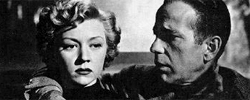
In A Lonely Place
1950 -
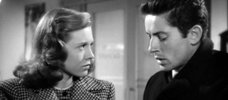
They Live By Night
1948 -
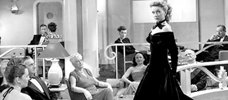
A Woman’s Secret
1949 -
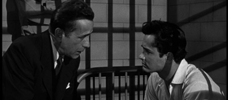
Knock on Any Door
1949 -

Born to Be Bad
1950 -
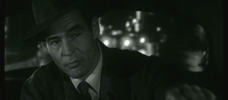
On Dangerous Ground
1952 -
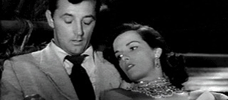
Macao
1952 -
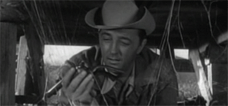
The Lusty Men
1952 -

Johnny Guitar
1954 -
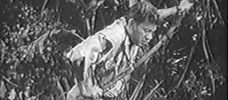
High Green Wall
1954 -
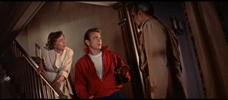
Rebel Without a Cause
1955 -
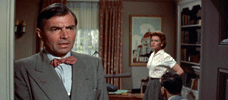
Bigger Than Life
1956 -
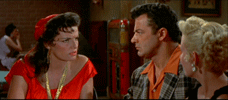
Hot Blood
1956 -

The True Story of Jesse James
1957 -
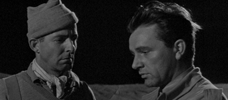
Bitter Victory
1957 -

Party Girl
1958 -

King of Kings
1961 -
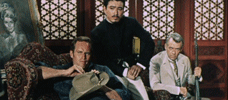
55 Days at Peking
1963 -
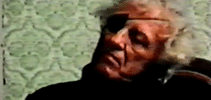
The Janitor
1974 -
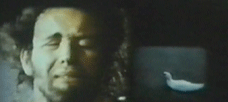
We Can’t Go Home Again
1973-1976 -
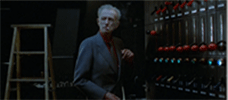
Lightning Over Water
1980
We don’t do comments anymore, but you may contact us here or find us on Twitter or Facebook.



